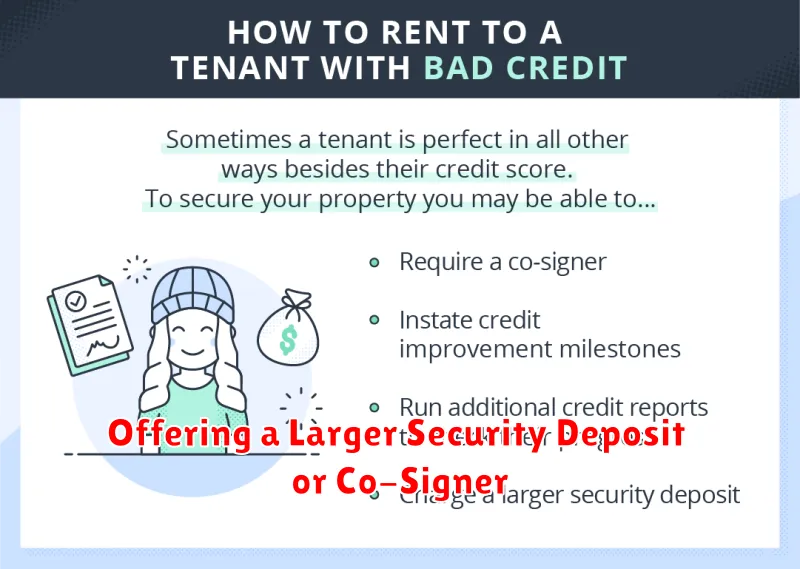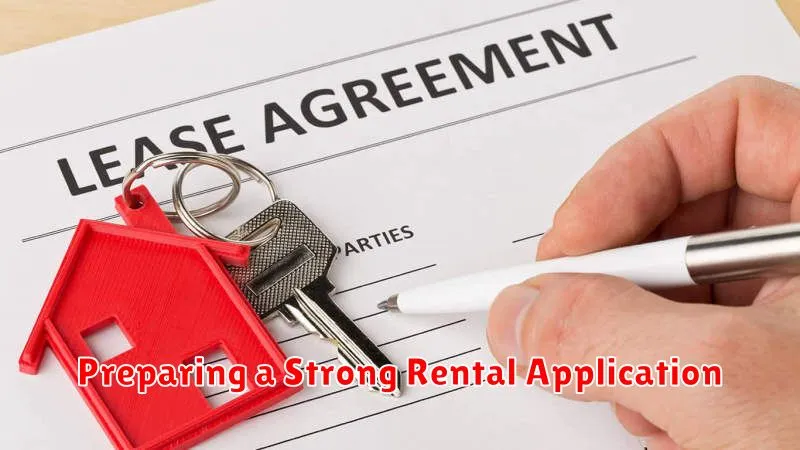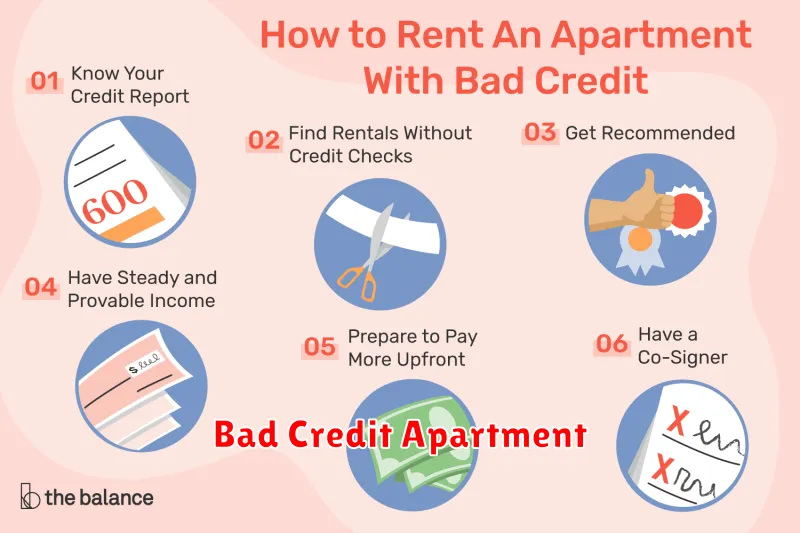Having bad credit can feel like a major roadblock when it comes to renting an apartment. Landlords often use credit scores to gauge your responsibility and ability to pay rent on time. But don’t despair! While it might be harder, it’s not impossible to find a place to rent with bad credit. This article will delve into some practical tips for renting an apartment with bad credit, including strategies for improving your credit score and navigating the rental process effectively. Whether you’re a first-time renter or looking for a new place, these insights can help you secure the apartment you want, even with less-than-perfect credit.
Understanding Your Credit Report and Score
Having bad credit can make renting an apartment a challenging task, but understanding your credit report and score is the first step towards overcoming these obstacles.
Your credit report is a detailed history of your financial behavior, including how you manage credit cards, loans, and other forms of debt. It is compiled by three major credit bureaus: Experian, Equifax, and TransUnion.
Your credit score is a numerical representation of your creditworthiness, based on the information in your credit report. It is calculated using a complex formula that considers factors such as your payment history, credit utilization, and length of credit history.
A low credit score can indicate to landlords that you may be a risky tenant. However, by understanding your credit report and score, you can identify any errors or areas for improvement, which can positively impact your chances of getting approved for an apartment.
Improving Your Credit Score Before Applying
If you have bad credit, you may be wondering how to improve your score before applying for an apartment. Here are a few tips:
First, check your credit report for errors. You can get a free copy of your credit report from each of the three major credit bureaus (Equifax, Experian, and TransUnion) once a year at AnnualCreditReport.com. If you find any errors, dispute them with the credit bureaus.
Next, pay your bills on time. This is one of the most important factors that affects your credit score. Late payments can seriously damage your score, so make sure to set up payment reminders or use automatic payments.
You can also try to lower your credit utilization ratio. This is the amount of credit you’re using compared to your total available credit. Aim to keep your credit utilization ratio below 30%. You can do this by paying down your existing debts or by applying for a credit card with a higher credit limit.
Finally, consider building positive credit by becoming an authorized user on a credit card with a good payment history. This can help boost your credit score.
By taking these steps, you can improve your credit score and make it easier to get approved for an apartment.
Being Upfront with Potential Landlords
When you have bad credit, finding an apartment can feel daunting. You might be tempted to hide your credit history or try to downplay it. However, the best approach is to be upfront with potential landlords. Being honest and transparent shows that you are trustworthy and serious about renting. It also gives you the opportunity to explain any mitigating circumstances, such as a past financial hardship, and demonstrate that you are taking steps to improve your credit.
Don’t be afraid to offer to provide additional information or documentation to support your application. This could include a letter of explanation, recent pay stubs, or a letter of recommendation from a previous landlord. By being open and proactive, you can increase your chances of finding an apartment that’s right for you.
Offering a Larger Security Deposit or Co-Signer

If you have bad credit, offering a larger security deposit can be a way to convince landlords you’re a reliable tenant. A larger deposit shows that you are serious about renting the property and are willing to take on more financial responsibility. Landlords may also be willing to accept a larger deposit as a trade-off for your lower credit score.
Another option is to have a co-signer on your lease. A co-signer is someone with good credit who agrees to be financially responsible for the lease if you default. This can be a family member, friend, or significant other. Landlords are more likely to approve a lease with a co-signer because they have an additional layer of security.
While offering a larger security deposit or having a co-signer can help you secure an apartment, it’s important to remember that these are not guaranteed solutions. Ultimately, it’s up to the landlord to decide whether or not to rent to you.
Providing Proof of Income and Employment Stability
Even with bad credit, landlords want to ensure you can afford rent. Providing proof of income is crucial. This can be done by presenting pay stubs, bank statements showing regular deposits, or a letter from your employer confirming your salary and employment duration. Employment stability is also important. A long history with the same employer shows you’re reliable. If you’ve had recent job changes, consider offering a letter from your previous employer stating your employment history. Be prepared to provide additional documentation if requested, like tax returns or self-employment income records.
Finding Apartments That Accept Lower Credit Scores
If you have a lower credit score, finding an apartment that will accept you can be difficult, but it’s not impossible. There are landlords and property managers who are willing to work with tenants who have less-than-perfect credit. Here are some tips for finding apartments that accept lower credit scores:
Be upfront about your credit score. Don’t try to hide it or make excuses. Be honest with the landlord or property manager about your situation, and explain what steps you’re taking to improve your credit. They will appreciate your honesty, and it might help them to be more understanding.
Be prepared to pay a higher security deposit. Landlords may ask for a higher security deposit to offset the risk of renting to someone with a lower credit score. Be prepared to offer this to increase your chances of getting approved.
Be willing to sign a longer lease. Landlords may be more willing to rent to tenants with lower credit scores if they sign a longer lease. This shows that you are committed to living in the apartment for a longer period of time, which reduces their risk.
Look for landlords who are willing to work with tenants with bad credit. Some landlords specialize in working with tenants who have lower credit scores. Try to find out if there are any landlords in your area who are known to be more flexible with credit requirements.
Consider a co-signer. If you have a friend or family member with good credit, they may be willing to co-sign your lease. This means they will be financially responsible for the rent if you fail to pay. Having a co-signer can make a big difference in getting your application approved.
Look for apartments that are advertised as being “credit-friendly.” Some apartment complexes advertise themselves as being more flexible with credit requirements. This can be a good place to start your search.
Consider renting a room in a shared apartment. Roommates may be more flexible with credit requirements than landlords. Renting a room could be a good way to get into an apartment while you work on improving your credit.
Be prepared to pay a higher rent. Landlords may charge a higher rent for apartments that are rented to tenants with lower credit scores. This is because they see renting to these tenants as riskier. Be prepared to pay this higher rent if you want to get your application approved.
Working with a Rental Agent or Locator
While it’s not a requirement to work with a rental agent or locator, it can be extremely beneficial if you have bad credit and are trying to rent an apartment. These professionals have access to listings that may not be advertised publicly, often including units from landlords who are more flexible with credit history.
Rental agents and locators can help you by:
- Connecting you with landlords who are willing to work with tenants with bad credit.
- Negotiating lease terms and rent amounts on your behalf.
- Providing guidance on how to improve your credit score.
Keep in mind that rental agents and locators usually charge a fee for their services. It’s important to research different agents and locators to find one that is reputable and fits your needs.
Exploring Alternative Housing Options
If you’re struggling to rent an apartment due to bad credit, don’t despair! Several alternative housing options can provide a safe and comfortable living space.
Rent-to-Own: This option allows you to lease a property with the option to purchase it later. You’ll make monthly payments, and a portion of those payments will go towards a future down payment.
Co-op Living: Co-op living involves owning a share in a building or complex, rather than a specific unit. You become a member of a cooperative and have a say in its operation. Co-ops often have less stringent credit requirements than traditional rentals.
Roommates: Sharing an apartment with roommates can significantly lower your monthly rent. You’ll need to find compatible roommates, but this option can be financially advantageous and socially enriching.
Temporary Housing: If you’re in a short-term situation, consider temporary housing options like furnished apartments or extended-stay hotels. While this might be more expensive, it can offer a comfortable place to live while you improve your credit score.
Preparing a Strong Rental Application

Even if you have bad credit, you can still increase your chances of getting approved for an apartment by presenting a strong rental application. Landlords look at more than just your credit score, and there are several things you can do to make your application stand out.
First, be honest about your credit history. Don’t try to hide it or downplay it. Landlords will eventually find out, and it will make you look untrustworthy. Instead, be prepared to explain any negative marks on your credit report and show that you’re taking steps to improve your credit.
Second, highlight your positive qualities. If you have a steady job with a good income, be sure to emphasize that on your application. Landlords want to see that you can afford to pay rent on time. You can also provide a letter of recommendation from your previous landlord or employer.
Third, offer to pay a larger security deposit. This shows the landlord that you’re serious about renting the apartment and that you’re willing to take on more financial responsibility. You might also offer to pay a few months’ rent in advance.
Finally, be prepared to answer any questions the landlord may have about your credit history. Be honest and upfront, and show that you’re taking steps to improve your credit. With a strong application and a positive attitude, you can increase your chances of getting approved for an apartment, even with bad credit.
Highlighting Your Positive Rental History

Even with bad credit, you can still convince a landlord you’re a responsible tenant. One way to do this is by highlighting your positive rental history. This involves demonstrating a track record of paying rent on time and taking good care of the property.
If you have a history of renting, provide your potential landlord with a list of previous landlords. This list should include their contact information so the landlord can verify your rental history. You can also offer to provide letters of recommendation from past landlords. This provides concrete evidence of your reliability and responsibility.
If you have a history of consistently paying rent on time, be sure to emphasize this fact. If you have any documentation that proves this, like bank statements or receipts, be sure to provide it to the landlord.
If you have never rented before, don’t worry! You can still demonstrate your responsibility. Be sure to emphasize your other positive financial traits. This could include having a steady job, a strong savings history, or a history of paying other bills on time.
By taking the time to highlight your positive rental history, you can increase your chances of securing an apartment even with bad credit.
Demonstrating Financial Responsibility
Even with bad credit, you can still prove to landlords that you’re financially responsible. Landlords want to see that you’re reliable and capable of paying rent on time. Here are some tips for demonstrating your financial responsibility:
Offer a larger security deposit. A larger security deposit can help alleviate a landlord’s concerns about your credit score. This shows you are willing to invest in the property and are serious about renting it.
Provide a letter of explanation for your credit score. Be honest and transparent about any negative marks on your credit report. Explaining the circumstances behind them shows that you’re taking responsibility and learning from past mistakes.
Offer to co-sign with a financially responsible person. If you have a reliable friend or family member with good credit, ask them to co-sign your lease. This shows the landlord that you have a strong support system and are committed to fulfilling your financial obligations.
Demonstrate a stable income. Provide proof of regular employment and income through pay stubs or bank statements. This gives the landlord confidence that you can afford the rent each month.
Be prepared to answer questions about your finances. Landlords may ask about your past rental history, income, and any outstanding debts. Be upfront and honest in your responses. This demonstrates your trustworthiness and commitment to financial responsibility.
By taking these steps, you can increase your chances of finding an apartment even with bad credit. Remember, building a positive financial history takes time. Be patient, consistent, and responsible with your finances, and you’ll eventually see a positive impact on your credit score.
Building a Positive Relationship with Your Landlord
Even if you have bad credit, you can still build a positive relationship with your landlord. This is important because it can help you stay in your apartment longer, avoid problems, and even get a better deal on your rent. Here are a few tips:
Be communicative. Talk to your landlord about any issues you have with the apartment, such as repairs or noise complaints. This shows that you’re responsible and that you care about the property.
Be responsible. Pay your rent on time and keep your apartment clean. This shows your landlord that you’re a reliable tenant.
Be respectful. Treat your landlord and other tenants with respect. This will help you avoid any unnecessary conflicts.
By following these tips, you can build a positive relationship with your landlord and make your renting experience more pleasant.

